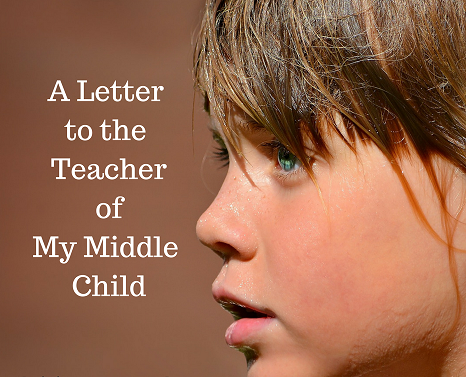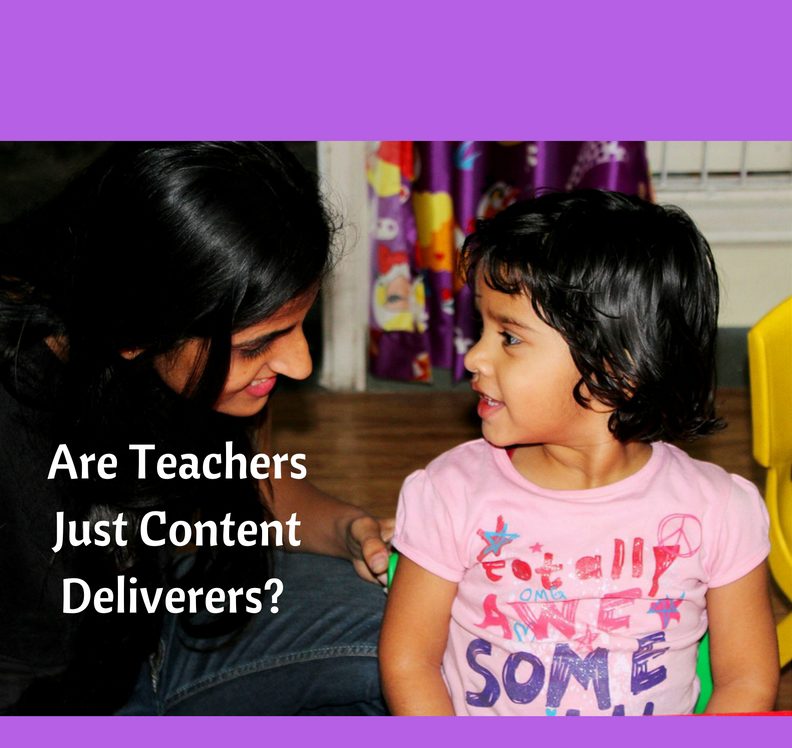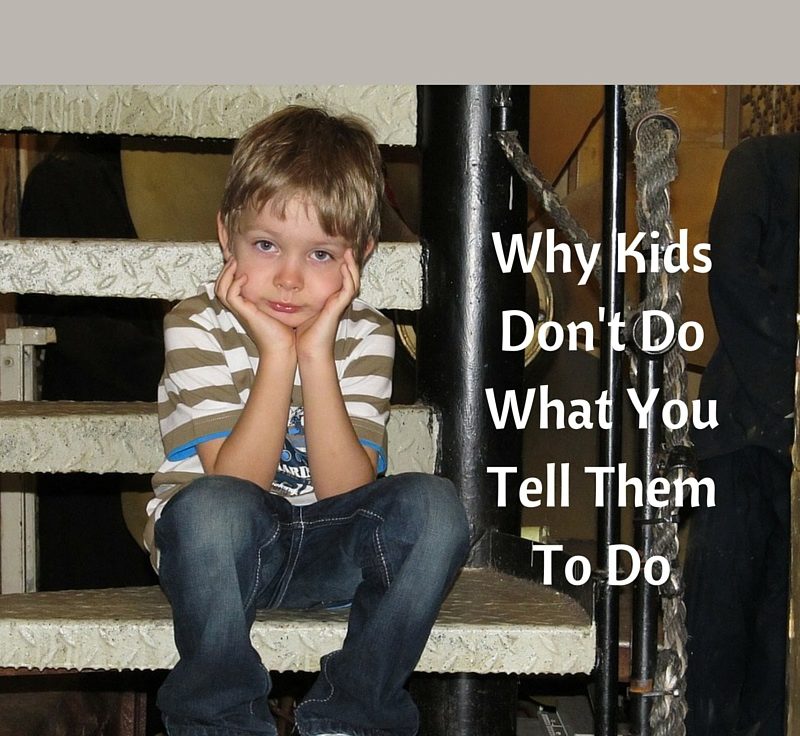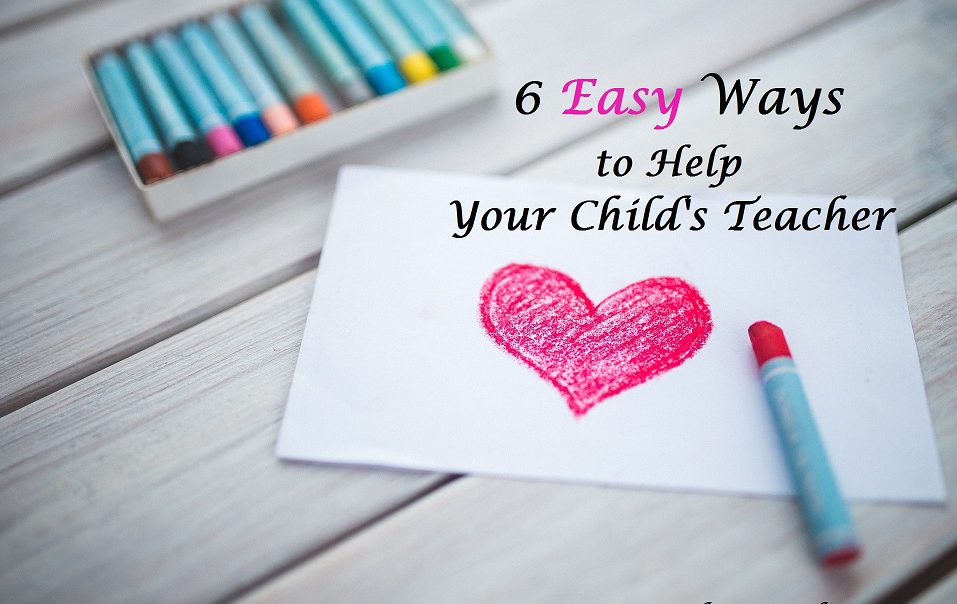 Dear Teacher of my Middle Child,
Dear Teacher of my Middle Child,
This morning as I raced my mini-van up to your school and practically threw my middle child out so she wouldn’t be late for first period, I yelled after her to have a great day. Then, as I was sitting in the backed up car line waiting to leave the school, the guilt set in and I uttered a short but heart-felt request to you. Of course you couldn’t hear me, but I want you to know what it is that I muttered to you with all of the desperation this overwhelmed mother could muster up. It wasn’t fair to ask, and I am sorry, but I asked you anyway. I hoped by some twist of fate, you knew just what I asked.
Although it is completely unfair to ask of you, dear teacher of my middle child, I hoped and prayed that you gave my “middle” some extra attention today. I know her hair had a huge uncombed snarl in the back (I noticed it too late as she was racing into the school building). And I know that she was wearing her older brother’s t-shirt which doesn’t fit her. I saw her getting dressed for school this morning, sort of. I was there but I was cleaning up the gallon of milk her little brother spilled on the floor. She walked through the kitchen with a hairbrush so I assumed she got the snarls out but at the time I was too busy to ask because I was loading her older sibling’s trombone into the car along with his two different bags for his two different after school events. In my defense, when I looked at her head-on as we climbed in the van, she really had brushed her hair. Well, at least the front of it.
The reason I have placed hope of her individual attention on you is because over the dinner table, almost nightly, she tells of the special things you do for her. She thinks she might just be your favorite because you notice things about her that others don’t. Based on the small amount of time I have had the opportunity to witness you interacting with the kids, I can tell they all feel that they are your favorite in one way or another. But to my middle child, who never gets to experience things first at home (Sibling #1 already did it) or who never gets to be the last to do something (I guiltily admit to taking more pictures of my third child as he engages in the last time we will do an Easter Egg hunt, go trick-or-treating, etc), you are her saving grace.
Even though you have heard a child figure out a math problem thousands of times before, the excitement you showed her yesterday when she solved that same problem was all she talked about on the drive home. And the way you told her she was a good friend when she helped a crying classmate? That was the last thing she told me as I tucked her into bed the other night. Please, don’t ever, ever, feel that your words and deeds go unnoticed.
I don’t know how you do it. I often feel that I can’t give her the attention she needs and she is only one of three for me at home. In your classroom she is one of many. But somehow, miraculously, you make her feel special and you take the time to notice the little things she does.
So, I’m sorry. It wasn’t fair of me to ask such a huge favor of you, to give her that extra attention she so craves, when you interact with so many students daily. I wouldn’t have asked it of you (silently in the car line) if I didn’t feel it was necessary. But somehow you heard my whispered request. Tonight, as I tucked my middle into bed, she once again whispered to me something you did today that let her know she was special to you.
Thank you for fulfilling my unfair request.
Paula





